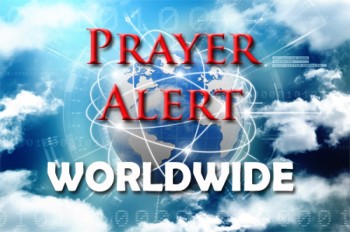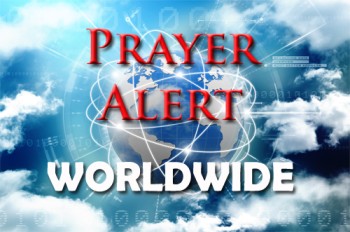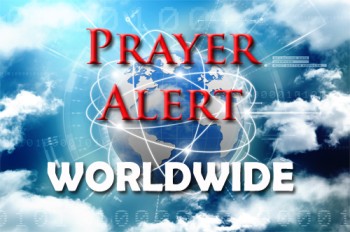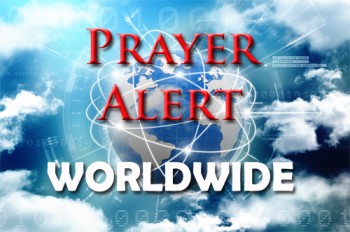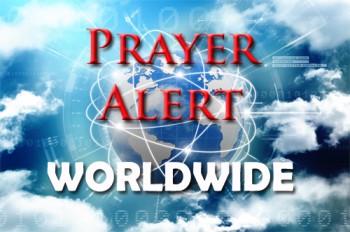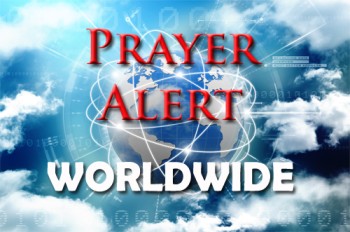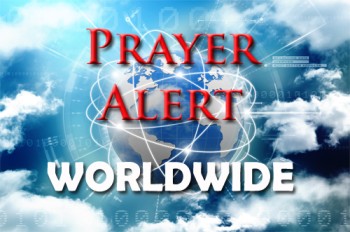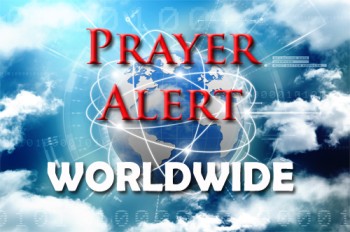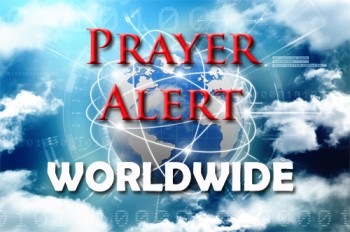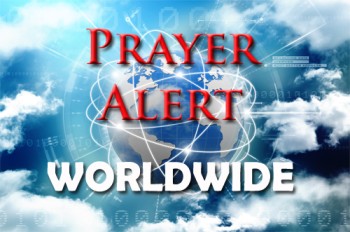Displaying items by tag: Caribbean
Cuba: misery caused by prolonged blackouts
Cuba has had one of its toughest weeks in years, with a nationwide blackout leaving its ten million citizens powerless for days, alongside devastation from Hurricane Oscar. For many, energy shortages have become routine, but this prolonged blackout forced people to resort to firewood when regular gas supplies ran out. The government has blamed US sanctions for hampering infrastructure upgrades, while critics argue that mismanagement has directed funds to tourism instead of energy. President Miguel Diaz-Canel warned against protests, no doubt wishing to avoid a repetition of the widespread demonstrations over similar issues in 2021. The government suspended all non-essential work and schools for a week, to avoid another collapse on the grid. Electricity generation now meets only 60-70% of demand, and there has been a 25% production drop since 2019. Hurricane Oscar’s destruction further underscored the nation’s vulnerability, leaving Cubans braced for more challenges as the crisis continues.
Cuba: president leads march to support Gaza
Cuba’s president, Miguel Diaz-Canel, has led thousands of protesters in Havana to show solidarity with Palestinians in Gaza. The march included around 250 Palestinian medical students and featured a large banner declaring, ‘Long live free Palestine’. The president and other leaders wore keffiyeh scarves as a symbol of solidarity. Participants expressed their support for Palestinian sovereignty and condemned Israel’s actions in Gaza. The march, originally scheduled for 7 October to mark the first anniversary of Israel's war on Gaza, was delayed due to Hurricane Milton. In June, Cuba joined a lawsuit filed by South Africa at the International Court of Justice against Israel's military actions in Gaza.
Haiti: nearly half the population face acute food shortages
According to the IPC, a world hunger watchdog, nearly 48% of Haiti's population faces acute food shortages. Over five million people are enduring ‘high levels of acute food insecurity’ from August 2024 to February 2025. Armed gang violence, rampant across Haiti, is a major factor contributing to the crisis. Despite international interventions and the appointment of a new government, the gangs currently control 80% of Port-au-Prince and key roads leading to the north and south of the country. The difficulties have led to high Inflation, with food costs now consuming up to 70% of household expenses. The lingering impacts of natural disasters like Hurricane Matthew and the 2021 earthquake further exacerbate the situation. A UN-backed mission led by Kenya has made some progress, but the IPC has warned that the overall crisis will likely worsen in the next eight months.
Haiti: thousands of young men eager to join military
The Haitian government has announced a recruitment drive for its military, attracting thousands of young men eager for jobs amid widespread gang violence and economic hardship. Many, like 21-year-old Maurenceley Clerge, see joining the military as a rare job opportunity in a deeply impoverished country. They want to improve their lives and serve their country, despite the risks of kidnapping, torture, or death. The army, disbanded in 1995 due to its notorious human rights abuses and involvement in coups, was reinstated in 2017 when the UN peace-keeping force withdrew from the country. The force currently has around 2,000 soldiers, but aims to more than double its size. More than 3,200 killings have been reported in Haiti from January to May, with gang violence leaving more than half a million people homeless in recent years.
Caribbean: Hurricane Beryl leaves huge trail of destruction
Hurricane Beryl, the earliest recorded storm to reach Category 5, is finally weakening after devastating the southeastern Caribbean, killing at least ten people and destroying 90% of homes on Union Island in the Grenadines. The speed with which the storm intensified is attributed to climate change. Beryl has caused enormous destruction, including three deaths in Grenada, three in St Vincent and the Grenadines, and two in northern Venezuela. Grenada’s Carriacou island is nearly cut off, with extensive damage to infrastructure. A UN executive said, ‘It’s clear that the climate crisis is pushing disasters to record-breaking new levels of destruction’. The number of hurricanes in the 2024 season is predicted to be well above average, with 17 to 25 named storms. For further details, see
Haiti: UN sends food aid for displaced
The UN has announced the delivery of aid to Haiti, which will help hundreds of displaced families due to the ongoing violence and the upcoming hurricane season. A spokesman said, ‘Two cargo flights organised by the World Food Programme (WFP) have landed in Port au Prince, carrying 55 tonnes of medicine, shelter and hygiene materials. The WFP school meals programme has distributed some 30 million meals across the country since the start of the current school year: of these, nearly 17 million have been provided through its programme which supports local farmers. The education sector has been severely impacted by the recent violence, with more than 200,000 children and 4000 teachers affected.’ Haiti’s hurricane season, which lasts from June to November, is forecast to be severe this year. A gang-fuelled crisis has devastated the country, and the UN estimates that currently 360,000 people are displaced.
Caribbean / Latin America: climate change will bring greater healthcare risks
A UN report has warned that tens of millions in coastal areas of the Caribbean and Latin America face severe healthcare and infrastructure risks due to climate change-induced extreme weather. The UN sexual and reproductive health agency (UNFPA) states that around 41 million people, or 6% of the region's population, are at risk from storm surges, flooding, and hurricanes. This includes 17% of the Caribbean population. Vulnerable groups, especially women and girls, are disproportionately affected. The report, using satellite imagery, identified over 1,400 key hospitals in at-risk coastal areas; in some Caribbean nations over 80% of hospitals are in these vulnerable zones. This year a highly active Atlantic hurricane season, exacerbated by hotter ocean waters and the La Nina phenomenon, is expected. The report coincides with a meeting in Antigua of Small Island Developing States (SIDS) leaders to discuss climate change impacts and economic solutions.
Haiti: new prime minister announced
On 28 May Garry Conille was appointed as Haiti's new prime minister, following a month-long selection process after Ariel Henry resigned in April. Conille, UNICEF's regional director for Latin America and the Caribbean since January 2023, had previously served as prime minister from October 2011 to May 2012. His appointment comes amid severe gang violence in Port-au-Prince, where gangs have attacked police stations, demolished prisons, and released over 4,000 inmates. Following coordinated gang attacks on 29 February, Port-au-Prince's main airport was out of action for nearly three months. Conille has a background in medicine and public health, contributing to Haiti's reconstruction efforts after the devastating 2010 earthquake. As he assumes office, Haiti is still waiting for the UN-backed deployment of a police force from Kenya and other countries.
Dominican Republic: president’s landslide re-election
Luis Abinader has been re-elected for a second term, clinching victory in the first round. The hugely popular president vowed unity and impartial leadership as he declared victory on 19 May, having secured a sufficiently wide margin to win without needing to go to a second-round face-off. His win appears to be an endorsement of his handling of the economy and tough policies towards migration from neighbouring Haiti. ‘Today our country shines with its own light’, Abinader told supporters, pledging to serve as president for all citizens. He called for a country ‘without distinction, without sectarianism, and without party colours’. He also vowed to push through constitutional reform on the continuity of power that would not rely on the ‘personal whim’ of the president in office, and pledged that he would not run again after completing his second term. While opposition parties reported a number of small irregularities, voting in the election largely ran smoothly.
Haiti: uncertainty after PM’s resignation
Haiti faces uncertainty after prime minister Ariel Henry's resignation, welcomed by Haitians amid escalating gang violence. Henry, stranded in Puerto Rico, pledged to resign once a transition council and temporary leader were chosen. US officials, after talks in Jamaica, expect the council to be appointed soon. Acting prime minister Michel Boisvert has signalled his willingness to facilitate an orderly transition. Port-au-Prince shows signs of improved security; the streets are quiet and the main cargo port has been reopened, though the airport remains closed. One of Haiti’s largest TV stations has left its headquarters, citing the insecurity. In another potential setback, the plans to deploy Kenyan police officers for a UN-backed security mission are on hold pending a new interim government. Haitians hope for stability as they await a new leadership amidst ongoing challenges.
